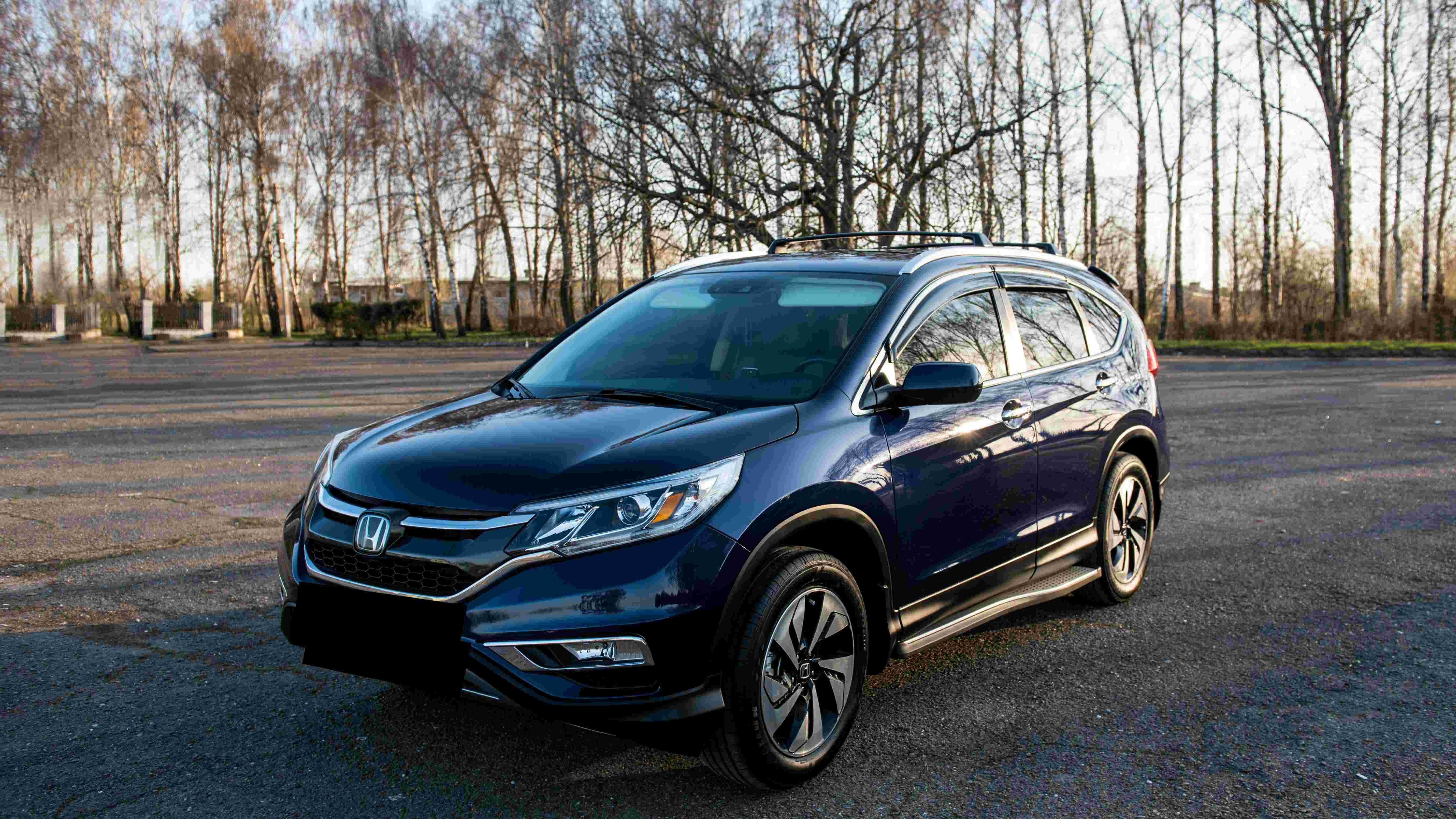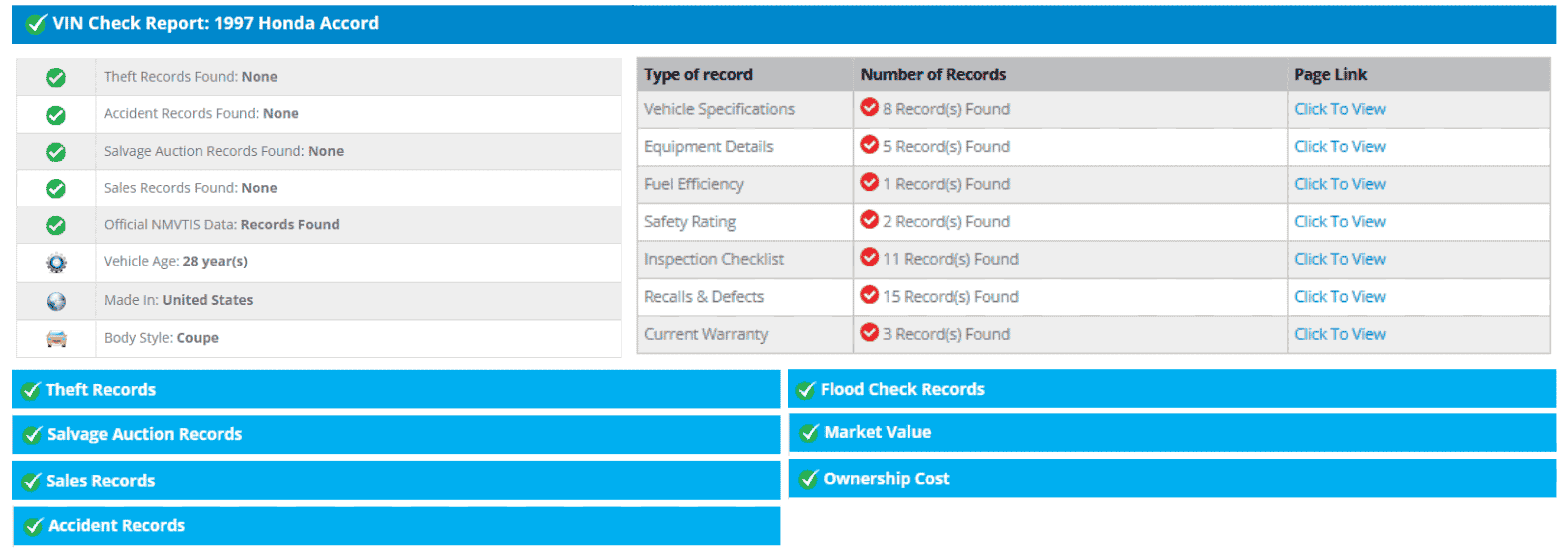 Whether you’re looking at the family-friendly Pilot, the sporty HR-V, or the adventure-ready Passport, buying a Honda SUV means more than just getting a vehicle. You’re also getting its full history. Even one hidden problem could turn your dream car into a big, expensive headache. That’s why a Honda VIN lookup (or Honda VIN check) is your best tool and smartest move.
Whether you’re looking at the family-friendly Pilot, the sporty HR-V, or the adventure-ready Passport, buying a Honda SUV means more than just getting a vehicle. You’re also getting its full history. Even one hidden problem could turn your dream car into a big, expensive headache. That’s why a Honda VIN lookup (or Honda VIN check) is your best tool and smartest move.
Don’t Get Burned—Find Out the Truth About Your Next Honda SUV Before You Buy!
In this easy guide, we’ll walk you through how to run a free Honda VIN check for popular SUV models. You’ll learn what key details to look for, how to avoid scams, and how to skip costly mistakes. We’ll also explain how to check for things like accident reports, title fraud, odometer rollbacks, and safety recalls.
Step by step, you’ll see how a Honda VIN lookup can help you shop smart, stay safe, and feel confident about your next SUV.
Why Every Honda Owner Needs to Understand Their VIN Number
Every Honda SUV—whether it’s a tough Pilot, a stylish HR-V, or a flexible Passport—comes with a special 17-character code called a Vehicle Identification Number (VIN). This number works like your car’s fingerprint. No two are the same.
You can usually find the VIN in a few spots:
- On the dashboard, near the windshield on the driver’s side
- Inside the driver’s side door frame
- On your registration papers or vehicle title
Now, here’s why this number really matters. When you run a Honda VIN number check free tool, you unlock a treasure chest of useful details about the vehicle’s past. For example, you can find out:
- How many owned the car before
- If it was ever in an accident
- What kind of title it has (clean, salvage, or rebuilt)
- How many miles it has driven
- If there are any open recalls
- And whether anyone reported it stolen (like NICB)
With all this information in hand, you can make a smarter choice. You won’t have to guess or take someone’s word for it. Instead, you’ll know if the Honda is safe, reliable, and worth your money.
That’s the power of a simple VIN check—it gives you the facts you need to buy with confidence.
Why SUV Buyers Should Prioritize a Honda VIN Check
SUVs are great for families, road trips, and even outdoor adventures. But because people often drive them hard, they can wear out faster than smaller cars. That’s why checking the VIN is super important—especially if you’re buying a used Honda SUV like the Pilot, HR-V, or Passport. A simple Honda VIN check tells you how the SUV was used, if it was well cared for, and if any red flags pop up.
1. Honda Pilot VIN Check
The Honda Pilot is a big, three-row SUV—perfect for families. Many owners use it for towing, long trips, or hauling gear. In 2024, it sold 127,694 units in the U.S. alone.
Here’s what to watch for in the VIN report:
- Signs of past accidents or frame damage
- Towing history that could wear out the engine or transmission
- Service records for brakes, suspension, and transmission
Checking these details helps you avoid buying a Pilot with hidden issues.
2. Honda HR-V VIN Check
The Honda HR-V is a smaller SUV that’s great for city driving. It’s popular with commuters and ride-share drivers because of its fuel efficiency. The HR-V is Honda’s best-selling subcompact SUV, with 138,911 units sold in 2024 in the U.S.
When you read the VIN report, look for:
- Odometer reading to make sure it’s not rolled back
- History of being a lease or rental vehicle
- Records showing regular oil changes and maintenance
Each of these points can give you peace of mind before you buy.
3. Honda Passport VIN Check
The Passport sits between the HR-V and Pilot in size. It’s built for adventure and often attracts people who love the outdoors. It sold 29,172 units in the U.S. in 2024 – down from 40,789 in 2023.
Key things to check in the VIN report:
- Signs of off-road damage or past flooding
- Any salvage or rebuilt titles
- Ownership changes in areas with extreme weather
These details can help you spot serious problems before they become your problem.
What You’ll Learn from a Honda SUV VIN Report

A full Honda VIN lookup reveals detailed insights that help you make a smart buying decision. Here’s what each section typically includes:
Title & Sales History
- How many previous owners?
- Was the SUV ever branded as salvage, junk, or rebuilt?
- Is the title clean and transferable?
Vehicle Specifications
- Engine size and transmission type
- Trim level and drivetrain (FWD, AWD)
- Factory-installed features and options
- Fuel type and MPG ratings
Accident & Damage Records
- Police-reported accidents
- Airbag deployment
- Frame or structural damage
- Repair estimates and timelines
Service & Maintenance Logs
- Dealer-performed services
- Regular oil changes
- Tire replacements, brake jobs, etc.
- Transmission and engine work
Mileage Readings
- Odometer consistency
- Tampering detection
- High vs. average mileage comparison
Manufacturer Recalls
- Any active recalls
- Instructions to resolve them at no cost
Theft Reports
- Reported stolen?
- Recovered and legally cleared?
Market Value & Ownership Cost
- Estimated current market value
- Price trends based on location and mileage
- Projected maintenance and fuel costs
- Insurance cost estimates
Auto Liens & Loans
- Outstanding auto loans
- Lienholder information
- Risks of repossession or title transfer issues
Vehicle Safety Ratings
Auto Warranty Status
- Original manufacturer warranty details
- Remaining coverage based on mileage and time
- Powertrain vs. bumper-to-bumper info
- Eligibility for extended warranties
Red Flags to Watch For in a Honda SUV VIN Check
Here are a few warning signs that should make you think twice before buying:
- Salvage or Rebuilt Title – Indicates significant damage and may reduce safety or resale value.
- Multiple Accidents – Even minor collisions can add up in repair costs or structural wear.
- Odometer Rollback – If mileage suddenly drops in history, it’s a sign of tampering.
- Inconsistent Ownership Records – Flipping cars quickly can indicate hidden issues.
- Open Recalls Not Addressed – Unresolved safety recalls can signal poor maintenance.
- Title Washing – Shady sellers may re-register vehicles in different states to hide branded titles like salvage or flood.
- Incorrect Trim or Model Info – VIN checks that don’t match the actual features could mean modification or misidentification.
- Frequent Registration Changes Across States – A history of being registered in flood-prone or high-theft areas can increase risk.
- Stolen Vehicle Record – A clean-looking used Honda could still be listed as stolen if not properly checked.
- Insurance Total Loss Record – Even if repaired, a car previously declared a total loss by insurers may have hidden problems.
- Commercial or Fleet Use – Ex-rental or fleet vehicles like Honda Passports may have higher-than-average wear and tear.
Truth First, Purchase Second: Don’t Regret Your Buy
Thinking about getting a Pilot for your family, an HR-V for daily drives, or a Passport for fun weekend trips? No matter which one you choose, running a Honda VIN number check free tool is a smart move.
It shows the real history of the car. This way, you can avoid surprise repairs, scams, or buying something unsafe.
Also, never trust just what the seller says. And don’t depend only on how the car looks. A Honda VIN number check—whether free or paid—can give you facts you won’t see on the surface.
In short, the right report can save you money, stress, and trouble. Always check the VIN before you buy!
Common Questions About Honda SUV VIN Checks
Can I do a Honda VIN number check free right now?
Yes! You can start with tools like NICB and NHTSA, but for full data—including service history and title records—you’ll need a premium service. Always begin with the free Honda VIN lookup, then expand as needed.
Is it safe to buy a used Honda SUV with a branded title?
It depends. A branded title (like salvage or flood) may indicate the SUV was severely damaged. Even if repaired, it could pose safety risks and affect insurance or resale value.
What if the seller refuses a VIN check?
Walk away. A reputable seller will gladly provide the VIN and allow time for a proper check. Refusal usually means there’s something to hide.